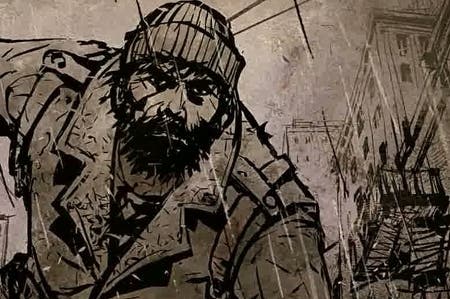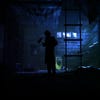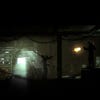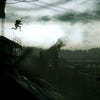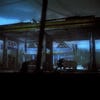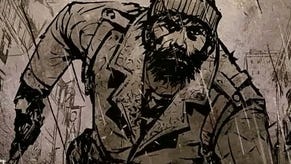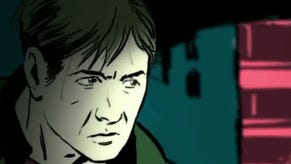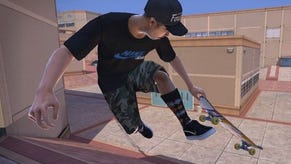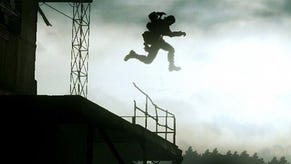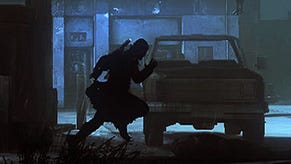Deadlight Review
Flashback.
By the time the time the real apocalypse decides to show itself, it's likely to be met by a simple shrug of the shoulders from most of us. We've all explored the wastelands and seen what happens when the world finally eats itself so many times, it's all in danger of becoming a little passé.
In order to spice up the end of days, to inject a little more excitement into the routine horror of Armageddon, you need a fresh perspective. I Am Alive plucked one from the ashes by placing a perverse emphasis on the bleak horror of surviving, a vision as influenced by the grim authenticity of The Road as it was any other game.
Spanish developer Tequilla Works shares Ubisoft Shanghai's literary tastes, though it's found another perspective through which to filter them. Cormac McCarthy is one inspiration, but it's Jordan Mechner, Eric Chahi and Paul Cuisset (all acknowledged as the final credits roll) who are the real guiding lights here.
Deadlight's a side-scrolling 2D platformer that follows on from the severed lineage of Prince of Persia, Another World and Flashback, casting you as survivor Randall Wayne as he picks his way through the debris of a ruined mid-'80s Seattle and through the fragments of his own shattered memory.
It's a neat hook, bringing together two well-worn components to craft something that feels novel. Deadlight's visual style is placed somewhere between Limbo and Shadow Complex: a world of silhouettes stretching into the distance and creating a cross-section of a coherent metropolis.
This sense of place is what elevates Deadlight, and it's intelligently explored by Tequilla Works. Abandoned traffic jams on grey-lit freeways give way to rain-specked neon motel signs and then murky edgelands. In the city, Randall leaps across fire escapes and evades chasing helicopters in Canabalt-esque rooftop chases, and in the suburbs he bounds from house to house while racing past destroyed domestic scenes. Never has a 2D world felt so believable.
Randall himself is not so plausible: a gruff mob of clichés who's not quite worthy of the story he's been given. His memories are collected and recalled through the pages of a diary that are discarded throughout the levels, building a narrative that works towards a pedestrian, predictable climax.
But he's been grounded brilliantly in the world around him. His movement is full of a grace and momentum inherited from Mechner's Prince, and in the thud and crunch of impact there's a satisfying edge to the platforming that's more in tune with something like Mirror's Edge.
"Abandoned traffic jams on grey-lit freeways give way to neon motel signs and murky edgelands... Never has a 2D world felt so believable."
This physicality is carried through to the artfully apportioned combat. There's real horror in Deadlight, and it's well directed; the undead that walk this Seattle are at first an overwhelming force. Randall's granted a slim selection of tools that turn things around with a meaty twang, though. A fire axe violently chops through enemies while depleting a slim stamina bar, while firearms make use of what little ammo has been left lying about. The pacing here, as throughout Deadlight, is impeccable - both bullets and stamina run dry fast enough to ensure that encounters quickly turn into panicked escapes.
So Deadlight can lay claim to being as smart and atmospheric as previous 2D XBLA hits such as Limbo or Shadow Complex. There's one problem, though: Deadlight is an incredibly slight experience. A single play-through comes in at under two hours, and that running time's been bloated by an uncomfortable number of trial-and-error moments.
There's the breadcrumb trail of collectables that go on to form Randall's scrapbook and diary, as well as a trio of digital handhelds to be discovered, but they're hardly enough to tempt you back in.
Ultimately, that two-hour figure sits quite comfortably with Deadlight, which is something of a damnation in itself. The bigger problem is how mechanically slight this is; there's not enough meat to come back to, making this a one-shot affair with a bloated price tag that doesn't quite fit.
As fleeting entertainment, Deadlight works, its flattening of a tired apocalyptic premise doing enough to make sure that it feels fresh. It's a worthy successor to other 2D XBLA adventures, but in the end you can't help feeling that this one could have done with a little more depth.
